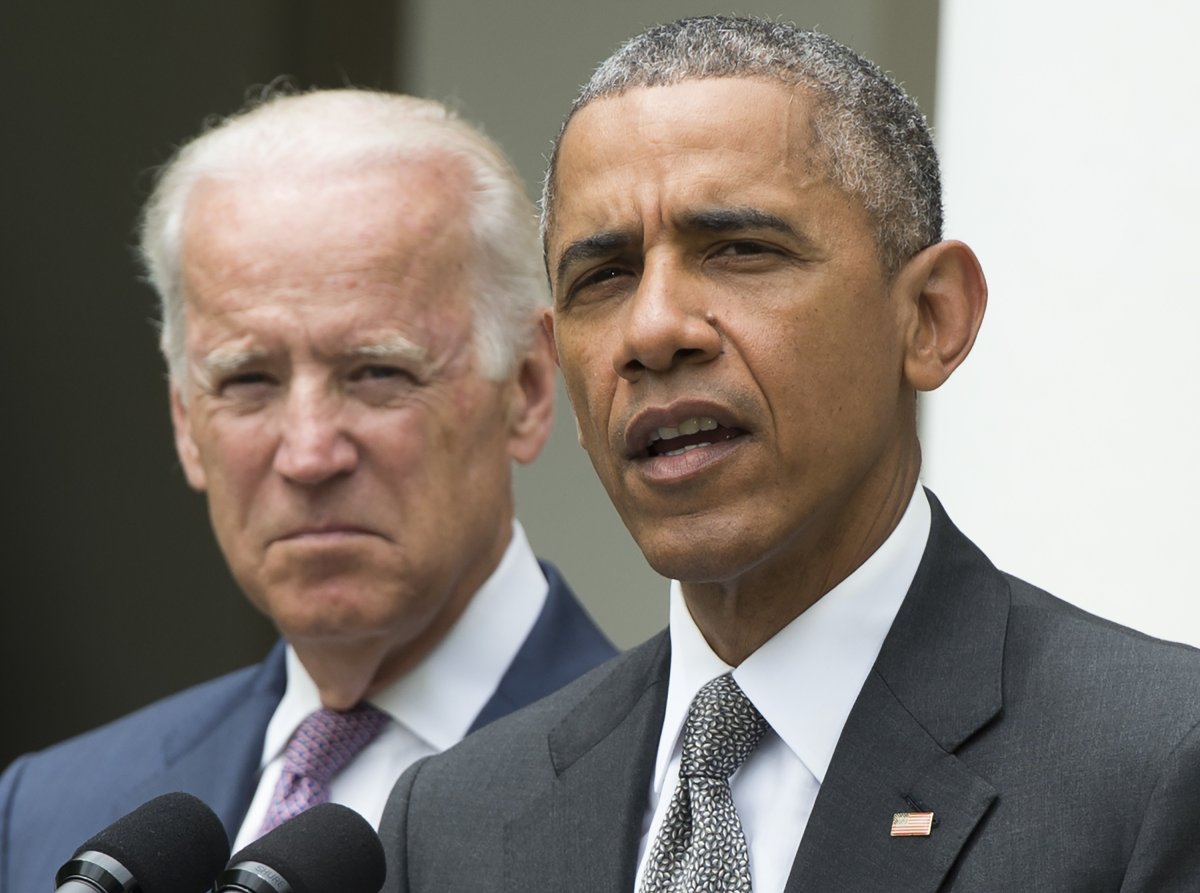Democrats are still working to pass a $3.5 trillion social spending and infrastructure package, the Build Back Better Act, as divisions within the party continue.
Progressives and moderates have clashed over the bill's price tag and some of its measures, including proposals to tackle climate change.
Democrats aim to pass the final version of the legislation through the budget reconciliation process. This would allow the bill to be approved without any Republican backing—so long as every Democratic senator supports it. It is highly unlikely that any Republicans in the Senate or House of Representatives will vote for it.
The division along party lines has drawn comparisons to the Affordable Care Act of 2010, known as Obamacare.
The package was former President Barack Obama's central policy achievement and made up of two bills. The ACA passed the House and Senate without Republican support and with 34 House Democrats voting against it.
A second bill, the Health Care and Education Reconciliation Act of 2010, was passed by Democrats using budget reconciliation in order to make changes to the ACA.
In a similar way, Democrats are seeking to pass both the Build Back Better Act and a separate, bipartisan $1.2 trillion infrastructure bill, which has already passed the Senate. Progressives in the House have suggested they will not vote for the bipartisan bill unless it is linked to the larger package.
Republicans recorded big gains in the 2010 midterm elections and subsequently made numerous attempts to repeal Obamacare in whole or in part. Experts who spoke to Newsweek agreed that there were parallels with Build Back Better, but also pointed out that politics had changed in the past decade.
Democrats' Divisions
David A. Bateman, an associate professor of government at Cornell University, told Newsweek there were "many similarities" between the two bills.
"Both passed or will pass along straight party lines, partly through use of a reconciliation process that lends itself to being portrayed as using 'arcane' procedures to 'railroad' the opposition," Bateman said.
"Both revealed considerable divisions among Democrats, in each chamber and between chambers," he added. "All this, when combined with near Republican unanimous opposition, provides a foundation for Republicans to attack them being extreme. And both legislative fights had or have looming elections hanging over them, the outcome of which has the potential to massively alter Democrats' calculations."
Bateman went on: "There were many reasons why the Democrats did poorly in the 2010 midterms, but we know the ACA didn't help. It's likely that voting yes on the bill cost a number of members seats that they might otherwise have been able to retain.
"Similarly, it seems likely that Democrats are going to have a rough 2022. If they fail to pass both or either bill, they'll be seen as unable to govern, likely dampening enthusiasm among Democratic voters."
Paul Quirk, a political scientist at the University of British Columbia in Canada, told Newsweek that progressive Democrats could damage their party's chances in 2022.
"The Democrats' losses in the 2010 election were more about the public's fear of change in health care, and Republican messaging that exploited those fears, than about the party-line votes on Obamacare," Quirk said.
"Few voters will notice whether the Democrats' reconciliation bill passes on party-line votes in the House and Senate. Many will notice if it amounts to a huge expansion in government programs and spending.
"In that case, the majorities in swing states and districts will likely push back by supporting Republicans. It will moderate such backlash, of course, if the new or expanded programs continue to be generally popular," he said.
"The progressive caucus Democrats will likely hurt the party's electoral prospects if they get everything they want in the reconciliation bill, but they will cause much greater harm if they kill it entirely by refusing to compromise."
Republican Repeal
Republicans expended considerable effort in ultimately unsuccessful attempts to repeal Obamacare. Potential GOP majorities in the House and Senate could attempt to repeal Build Back Better in 2023.
The bill contains a variety of measures that will affect the lives of ordinary Americans, including universal preschool, expansion of Medicare and Medicaid, and paid family leave. Republicans could try to repeal the act in its entirety or target specific measures.
"Many of those benefits could be on the chopping block if and when Republicans take back control in Washington," said Thomas Gift, founding director of University College London's Center on U.S. Politics.
"However, what Republicans may need to watch out for is that, like Obamacare, the bill could prove more popular once the legislation actually takes effect and Americans see how it benefits them.
"One reason why spending sprees like the one Biden is proposing ultimately poll so well once enacted is that they essentially give Americans a dollar worth of government benefits, and only charge voters a fraction of that amount for them."
Gift added, however: "Of course, contrary to the fiction Biden peddles that $3.5 trillion in new spending would 'cost nothing,' a considerable portion will ultimately be serviced by federal debt and higher taxes passed onto future generations."
Different This Time Around
Cornell's Bateman told Newsweek that despite the obvious similarities between Build Back Better and Obamacare, things had changed since 2010. He noted that Obama's package was "polarizing" even before it had passed.
"The summer of 2009 was a real energizing moment for Republicans and the Tea Party, and a lot of that energy was focused on health care," Bateman said.
"Things seem different this time around. Yes, Biden has lost ground over the summer, but that opposition didn't really crystallize around BBB. And most voters still don't really know what the BBB is all about. I suspect that's a feature rather than a bug.
"To a greater extent than the ACA, which had a clear policy core, the BBB is just a collection of policy priorities," Bateman added. "When you polled people about what was actually in the ACA, people liked everything but the mandate. But the image of the bill swamped the specifics.
"With the BBB also, the individual policies are generally really popular. But there's less of a broadly salient image of what the bill is about. That's not a surprise: it was a free college and climate change bill until a few weeks ago, and now is a parental leave and child care benefit bill, and who knows what it will be when negotiations are done."
An Abstract Act
The public's lack of understanding about the specifics "has some downsides for Democrats," according to Bateman.
"But it also means that the bill remains a bit abstract to most voters. When Republicans attacked Democrats for a government takeover of health care, or of trying to destroy Medicare, they were lying—but they were lying about a real issue that voters really, really care about.
"You can call the Build Back Better bill 'socialism' all you want, but that doesn't really mean anything specific to most voters. It doesn't have an intuitive connection to their material reality," Bateman said.
"I think it also suggests a difference from the quixotic effort to repeal the ACA. The ACA came to stand for Democrats, for Obama, for everything the Republican Party was against and everything they promised to stop. So, they kept bringing it up.
"Of course, when they tried to repeal it, the shoe was on the other foot: they were now trying to cut off benefits that people relied on and which voters understood as being important in their lives," he said.
"If the BBB bill passes, Republicans will promise repeal—but it's tough to imagine this getting the same type of traction. It just doesn't have the same salience."

Uncommon Knowledge
Newsweek is committed to challenging conventional wisdom and finding connections in the search for common ground.
Newsweek is committed to challenging conventional wisdom and finding connections in the search for common ground.
About the writer
Darragh Roche is a U.S. News Reporter based in Limerick, Ireland. His focus is reporting on U.S. politics. He has ... Read more
To read how Newsweek uses AI as a newsroom tool, Click here.








